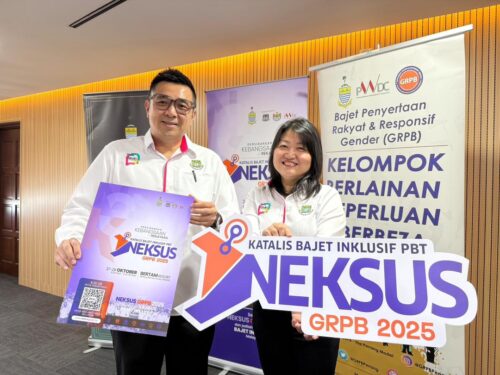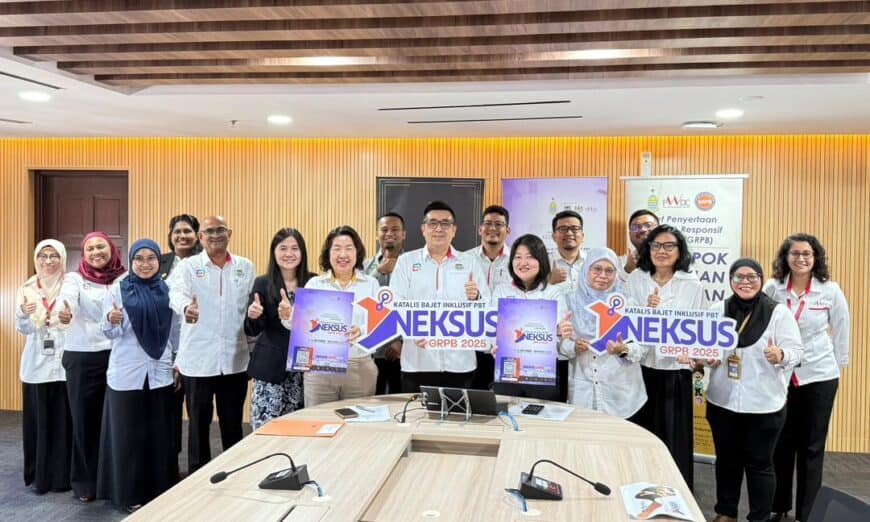THE Penang government, through the Penang Women’s Development Corporation (PWDC), the Penang Island City Council (MBPP), and the Seberang Perai City Council (MBSP), will host the NEKSUS GRPB National Conference and Applied Workshop 2025 at the Bertam Resort in Kepala Batas on Oct 27-28.
State executive councillor for Social Development, Welfare and Non-Islamic Religious Affairs, Lim Siew Khim, who co-chairs the organising committee with Jason H’ng Mooi Lye, the state Local Government, Town and Country Planning chairman, said the conference will provide a key platform for local authorities (PBT) nationwide to strengthen their knowledge and practices on Gender Responsive Budgeting (GRB) and Participatory Budgeting (PB).
“This is Malaysia’s first-ever conference of its kind, designed to facilitate knowledge exchange with the country’s GRPB pioneers — MBPP, MBSP, and PWDC. Drawing on 12 years of experience in localising inclusive gender budgeting, they have developed practical GRPB strategies that are ready for replication in other local authorities,” Lim said during a press conference at Komtar today.
Lim explained that the idea for NEKSUS GRPB arose after MBPP, MBSP, and PWDC frequently received requests from other PBTs and organisations to share their experiences through study visits and site tours in Penang and Seberang Perai.
GRPB, pioneered by PWDC, falls under Lim’s portfolio, while MBPP and MBSP are managed under H’ng’s local government portfolio. This cross-portfolio collaboration, she said, is what created the “nexus” for them to co-chair the conference together.

The two-day event, endorsed by Housing and Local Government Minister Nga Kor Ming, will begin with the national conference on Oct 27, featuring Datuk Seri Dr Maimunah Mohd Sharif, mayor of Kuala Lumpur City Hall and newly appointed ASEAN Special Envoy for Cities and Local Governments, as the keynote speaker. The second day will feature site visits and strategy workshops. Nga’s deputy, Datuk Aiman Athirah, is also scheduled to attend the event.
Lim said the theme, “Catalyst for Inclusive Local Government Budgeting,” reflects the event’s alignment with the United Nations Sustainable Development Goals (SDGs) — particularly Goal 5: Gender Equality, Goal 10: Reduced Inequalities, Goal 11: Sustainable Cities and Communities, and Goal 16: Peace, Justice and Strong Institutions.
“NEKSUS GRPB will act as a bridge between MBPP–MBSP and other local authorities, serving as a catalyst to accelerate change towards more inclusive, equitable, and gender-responsive planning and budgeting in Malaysia,” she added.
Lim also shared a personal example of GRPB in action: the development of Taman Areca in Sungai Pinang, a community park designed with inclusive features such as a universal playground, outdoor gym, women’s exercise area, flat walkways for the elderly and persons with disabilities (PWDs), and a community garden managed by residents.
Meanwhile, H’ng highlighted Penang’s leadership in GRB since 2012, when MBPP and MBSP each allocated RM200,000 annually for women’s empowerment projects under PWDC.
He noted that GRB, which originated in Australia in the 1980s, is now practised in more than 80 countries across Asia-Pacific, Europe, and Africa. In Malaysia, GRB began in 2006 with pilot projects in five ministries but has yet to be fully institutionalised.
“Penang and Seberang Perai were the first two cities in Malaysia to showcase GRB implementation, which later evolved into GRPB in 2014. Today, both local councils stand alongside cities like Vienna, Seoul, Kampala, Toronto, and Quezon City in pioneering GRB at the local government level,” H’ng said.
In 2023, United Cities and Local Governments Asia Pacific (UCLG ASPAC) organised a GRPB workshop for Malaysian local authorities at the DBKL Training Institute, with PWDC, MBPP, and MBSP serving as facilitators. This collaboration produced the GRPB Training Module, now a reference guide for cities across Asia-Pacific.
In 2024, URBANICE Malaysia conducted a study on Sustainable and Gender Responsive Urban Budgeting through Local Participation, using the Penang GRPB Model as a reference case. PWDC served as a consultant, working to extend the approach to local authorities beyond Penang.
“Following the success of the Penang model, we invite policymakers, practitioners, local authorities, NGOs, academics, and the public to join NEKSUS GRPB 2025 and learn how MBPP and MBSP have successfully integrated GRB and PB into Malaysia’s local governance context.”
Participation is limited to 500 attendees, accepted on a first-come, first-served basis.
Also present at the press conference were MBPP mayor Datuk A. Rajendran, MBSP deputy director of treasury Norshazila Alias, PWDC board director Datuk Rohana Abdul Ghani and PWDC chief executive officer Datuk Ong Bee Leng.
Story by K.H. Ong
Pix by Darwina Mohd Daud

